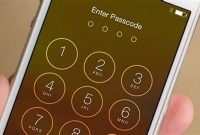Do you want to learn how to tap someone’s phone? Whether it be for safety reasons or just plain curiosity, it’s now possible to do so easily and without detection. With the right tools and techniques, you can successfully tap someone’s phone and monitor their activity without them ever finding out. But before you proceed, it’s important to note that tapping someone’s phone without their consent is illegal and unethical. Therefore, it’s important to use this knowledge only for ethical purposes. In this article, we’ll be discussing how to tap someone’s phone easily and safely.

What is Phone Tapping?
Phone tapping, also known as wiretapping or phone surveillance, is the process of monitoring someone’s phone conversations and intercepting their text messages. This practice is usually done secretly without the knowledge or consent of the phone owner. Phone tapping is done through the installation of software or devices that enable one to listen to calls and intercept messages.
How Does Phone Tapping Work?
Phone tapping works by installing a software or device on the target phone. The software is designed to intercept the phone’s communication and transmit it to the person doing the tapping. The software can be installed remotely or directly on the phone. With this device, the person tapping the phone can listen to phone calls, read text messages, and view call logs. The software is designed to be undetectable by the phone owner so that they don’t know the phone is being tapped.
Legal Implications of Phone Tapping
Phone tapping is illegal in most countries. It is considered an invasion of privacy and is punishable by law. Phone tapping can result in lawsuits, criminal charges, and jail time. It is important to note that certain government agencies may intercept phone calls and messages under special circumstances, such as national security or criminal investigations. However, in most cases, phone tapping without proper authorization is illegal.
How Does Phone Tapping Work?
Phone tapping can be a tricky business and you must proceed with caution as it can be illegal in many parts of the world if you do not have proper authorization. Tapping someone’s phone refers to intercepting and recording their phone conversations, text messages, or any other form of communication that takes place over their phone. It can be done in a number of ways.
Techniques Used for Phone Tapping
There are several techniques that can be used to tap someone’s phone. These include:
- Mobile Spy Software: This is one of the most common methods used for tapping into someone’s phone. It involves installing a spy app or software on the target’s phone, which allows you to monitor their communications remotely. Once installed, all the information – calls, messages, emails, chats – is sent to the hacker’s device without the knowledge of the target.
- Network Provider: A network provider can provide authorized access to someone’s phone. This requires legal documentation and involves the provider intercepting calls and messages for the authorized user. This method is often used by law enforcement agencies for legal investigations, with appropriate court orders and warrants.
- Cell Site Simulator: Also known as IMSI catcher or Stingray, this technique involves the use of a device that mimics a cell tower, allowing the hacker to intercept and eavesdrop on mobile communications in a given area. However, this method is illegal in many countries as it interferes with the mobile network signal.
What Are the Legal Implications of Phone Tapping?
Phone tapping is a serious offense that is frowned upon in most countries. It infringes upon an individual’s privacy and often leads to legal repercussions, including imprisonment and fines. In this section, we’ll take a closer look at the legal implications of phone tapping.
Consequences of Phone Tapping
In some countries, phone tapping is considered a criminal offense, and individuals who engage in such activities may face severe punishment.
- In the United States, phone tapping is illegal and a punishable criminal offense. Individuals convicted of phone tapping can face up to 5 years in prison and a fine of $500,000 or more.
- In the United Kingdom, phone tapping is a serious crime, and individuals who violate the law may face imprisonment for up to two years. Furthermore, private investigators can have their licenses revoked if they are found to have participated in phone tapping.
- Similarly, in Australia, phone tapping is illegal, and penalties may include imprisonment of up to five years or a fine of up to $220,000 for individuals and $1.1 million for corporations.
It’s important to note that these are just examples, and legal consequences may vary from country to country. However, it’s universally agreed that phone tapping is a serious violation of an individual’s rights. So, if you’re considering tapping someone’s phone, you should think again.
Can You Tap Someone’s Phone Legally?
Tapping someone’s phone legally is only possible with a court order or warrant, which is only granted in exceptional circumstances. In most cases, tapping or monitoring someone’s phone without their consent is illegal and considered a violation of privacy and human rights.
When Can Law Enforcement Tap Someone’s Phone?
Law enforcement agencies may be granted permission to tap someone’s phone legally under exceptional circumstances, such as when there is a potential threat to national security or a suspected crime that poses a significant danger to the public. In such cases, law enforcement agencies are required to follow strict legal procedures and obtain a warrant or court order before tapping someone’s phone.
- The warrant or court order must explicitly state the name of the person whose phone is being tapped, as well as the reason for the tap and the duration of the tap.
- The court order or warrant must be obtained from a judge or magistrate who is authorized to grant such orders.
- The law enforcement agency must use the information obtained from tapping someone’s phone only for the purposes specified in the court order or warrant.
- The person whose phone is being tapped must not be notified of the tap, except in exceptional circumstances or as required by law.
Can You Tap Someone’s Phone Without a Warrant?
No, you cannot tap someone’s phone without a warrant. Tapping someone’s phone without a warrant is illegal and can result in severe criminal charges, including invasion of privacy, wiretapping, and more.
What Are the Consequences of Illegally Tapping Someone’s Phone?
Illegally tapping someone’s phone can have severe consequences, both legally and personally. If caught illegally tapping someone’s phone, you could be charged with criminal offenses, fined heavily, and even jailed. In addition, illegally tapping someone’s phone can damage your reputation and relationships with others, and result in a loss of trust.
In conclusion, tapping someone’s phone legally is only possible with a court order or warrant, which is only granted under exceptional circumstances. Tapping someone’s phone without a warrant is illegal, and may result in severe criminal charges.
What Are the Risks of Phone Tapping?
Advancements in technology have made phone tapping an easier and more accessible way of monitoring someone’s activities. However, phone tapping is illegal and carries several risks that can lead to severe consequences. Some of the common risks of phone tapping include:
Privacy infringement
Phone tapping can be an invasion of privacy. It allows someone to access personal and confidential information without authorization. This can lead to serious issues in personal and professional life, especially when the information is used for malicious purposes.
Identity theft
Phone tapping can also lead to identity theft. Personal information such as social security numbers, bank account details, and credit card numbers can be obtained through phone tapping. This can result in financial loss and other identity-related crimes.
Financial loss
Phone tapping can also lead to financial damages. If a tapped phone is used for business purposes, the competitor could gain access to sensitive information such as sales forecasts, customer details, and marketing strategies. It can also lead to a loss of clients and income.
Reputational damage
Phone tapping can also result in reputational damage. In personal instances, taped conversations can be used to blackmail or embarrass the intended target. In professional settings, sensitive business deals and information can be leaked, causing harm to a company’s reputation.
Legal repercussions
Phone tapping is considered a criminal offense in most countries, punishable by fines and even imprisonment. The person tapped can also seek legal action and sue for damages. In addition, legal action can be taken against the perpetrator and anyone else involved in the process.
Overall, phone tapping is a risky and invasive practice that should be avoided at all costs. The consequences far outweigh any potential benefits.
How Can You Keep Your Phone Safe from Tapping?
With the prevalence of smartphones in our daily lives, it’s important to keep them secure and protected from potential threats of tapping. Here are some ways you can ensure your phone is safe from tapping:
Set Strong Passwords
One of the most effective ways to keep your phone safe from tapping is by setting strong passwords. Use a combination of letters, numbers, characters, and upper/lower cases that are not easily guessed. Avoid using personal information like birthdates or social security numbers as passwords. Set up a passcode or a biometric lock like fingerprint or facial recognition for maximum protection.
Avoid Suspicious Links and Attachments
Another way to keep your phone safe is to avoid clicking on suspicious links and attachments. Malicious links and attachments may contain viruses or ransomware that could compromise your phone’s security and enable tapping. Be wary of links or attachments from unknown sources or those that seem too good to be true.
Monitor Your Phone Activity Regularly
Regularly monitoring your phone activity can help you detect any potential tapping or hacking. Keep an eye on your phone’s data usage, battery life, and behavior to spot any abnormalities. Be mindful of phone calls or text messages from unfamiliar numbers that may be attempting to access or tap your phone. Install security applications that can scan your phone for potential threats and provide alerts for any suspicious activity.
Avoid Public Wi-Fi Networks
When using public Wi-Fi networks, your phone is vulnerable to tapping by hackers who may be monitoring the network. Avoid using public Wi-Fi for sensitive activities like online banking or accessing personal information. If you have to use public Wi-Fi, ensure that your phone’s Wi-Fi and Bluetooth are turned off when not in use, and use a VPN to encrypt your internet connection.
Keep Your Phone Software Up to Date
Keeping your phone software up to date with the latest security patches and updates can also help to prevent tapping. These updates often include critical security upgrades that protect against known vulnerabilities and threats. Enable automatic updates on your phone to ensure that you’re always up to date with the latest software improvements.
Be Wary of Physical Access
Lastly, be cautious of anyone who has physical access to your phone. They may install tapping devices or spyware that can compromise your phone’s security. Keep your phone with you at all times and avoid lending it to strangers or leaving it unattended in public places. Lock your phone with a password, and avoid using easily guessable codes like “1234” or “0000”.
Frequently Asked Questions
| Questions | Answers |
|---|---|
| Is tapping someone’s phone legal? | No, tapping someone’s phone without their permission is illegal and can result in criminal charges. |
| Can you tap someone’s phone without installing software? | No, you need to install software or access their device physically to tap someone’s phone. |
| Is it easy to detect if your phone has been tapped? | It can be difficult to detect if your phone has been tapped, but there are some signs such as unusual beeps or static noises. |
| Can tapping someone’s phone be done remotely? | Yes, some software allows for remote tapping of someone’s phone. |
| What are the consequences of tapping someone’s phone? | Tapping someone’s phone without their consent is illegal and can lead to criminal charges, fines, and even jail time. |
Thank You for Reading!
We hope you found this article informative and useful. However, we do not encourage or condone tapping someone’s phone without their permission. It is important to respect people’s privacy and follow the law. Please visit us again soon for more informative articles!





